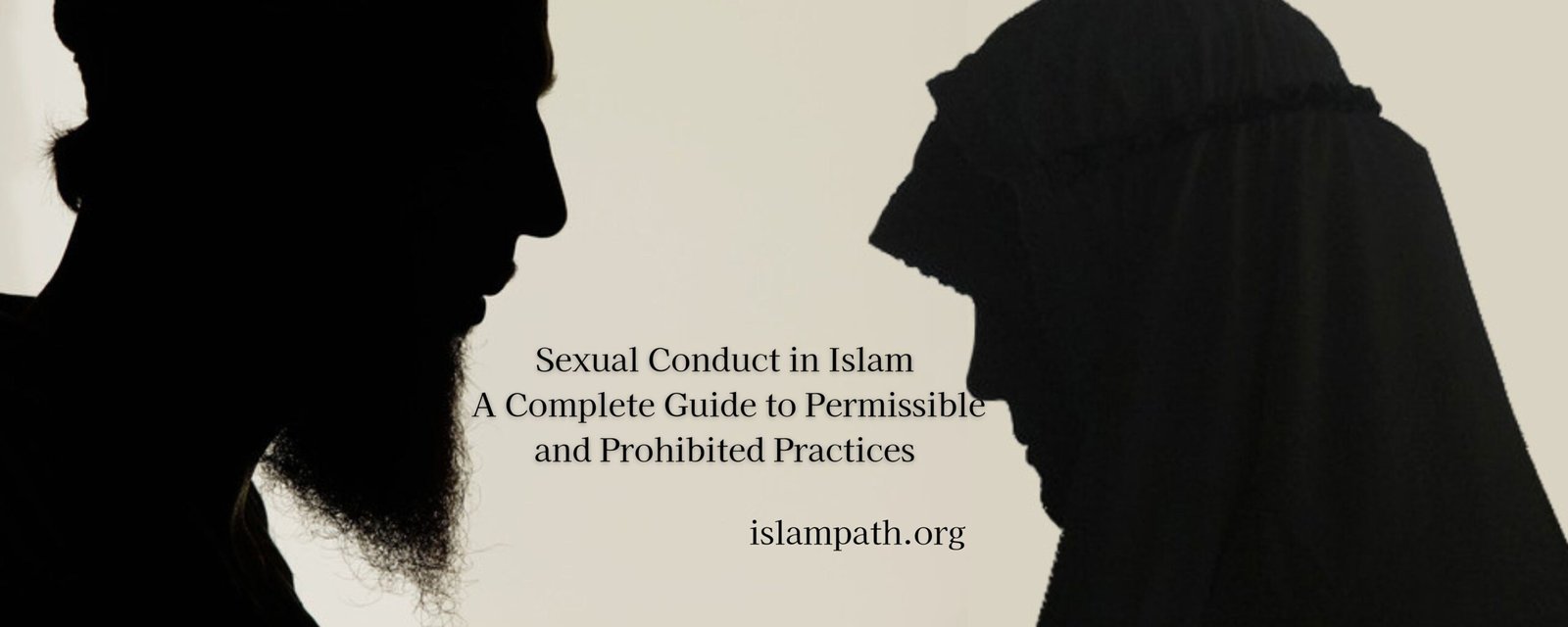Sexual Conduct in Islam : A Complete Guide to Permissible and Prohibited Practices
Islam gives the proper direction about all aspects of life including sexual relationships between spouses. Under the canopy of marriage, Islam promotes love and closeness but clearly defines boundaries to keep life pure, respectful, and healthy. This article examines the Islamic view on sexual activity and more specifically explores prohibited sexual positions according to sound Islamic teachings.
Knowing the Framework of Permitted and Forbidden Acts
Muslim Concept of Intimacy
Islam views marriage as a holy commitment and sexual intercourse as something that helps to love more and propagate the human family. The Quran encourages mutual respect, love and mercy between spouses.
“And among His Signs is this, that He created for you mates from among yourselves, that ye may dwell in tranquillity with them, and He has put love and mercy between your (hearts): verily in that are Signs for those who reflect.” (Surah Ar-Rum 30:21).
General Principles of Lawfulness
In the theory of Islamic jurisprudence, all acts are lawful by default unless prohibited by the Quran and Hadith. Marital intimacy, scholars assert on consensus, is lawful to the extent that no person causes harm, hurt feelings, or violates Islamic tenets.
Sex Positions Forbidden in Islam
Anal Coitus Evidence from the Quran:
The Quran says: “Your wives are as a tilth unto you; so approach your tilth when or how ye will; but do some good act for your souls beforehand; and fear Allah. And know that ye are to meet Him (in the Hereafter), and give (these) good tidings to those who believe. “ (Surah Al-Baqarah 2:223). Interpreting scholars say, “place of cultivation” is exclusive to vaginal intercourse and is not applied to anal coitus. Evidence from Hadith: Prophet Muhammad (peace be upon him) vehemently objected to anal coitus in authentic narrations: Allah will not look at a man who has intercourse with a woman through her anus.” (Sunan an-Nasa’i, 3891) Scholarly Consensus: All the major schools of thought in Islam are unanimous that anal intercourse is haram.
During Menstruation Quranic Evidence
The Quran prohibits intercourse during menstruation: “They ask thee concerning women�s courses. Say: They are a hurt and a pollution: So keep away from women in their courses, and do not approach them until they are clean. But when they have purified themselves, ye may approach them in any manner, time, or place ordained for you by Allah. For Allah loves those who turn to Him constantly and He loves those who keep themselves pure and clean.'” (Surah Al-Baqarah 2:222). Scholarly Explanation: Sexual intercourse during menses is not only sinful but also may cause medical complications. Scholars suggest other ways to achieve intimacy without violating this prohibition.
Sex in Public or Disrespectful Manner
The Islamic principle is not mentioned in the Quran or Hadith, but it highlights modesty and privacy of marital relations. Sexuality in acts where others may see or hear violates the Islamic code of modesty.
Sexual Practices Allowed with Restrictions
Various Postures within Limits
Surah Al-Baqarah 2:223 states that sexual intercourse is allowed to have varied postures as long as it is vaginal intercourse with mutual consent.
Mutual Consent and Respect
The Prophet Muhammad (peace be upon him) highlighted mutual satisfaction: “None of you should approach his wife like an animal; rather, there should be a messenger between you.” The companions asked, “What is the messenger, O Messenger of Allah?” He said, “Kisses and sweet words.” (Sunan Ibn Majah, 183)
Harmful Practices Avoidance
Even though Islam does not prohibit such acts, which may cause either physical or emotional harm, they should be avoided for the “no harm” principle in Islam (Hadith: “There should be neither harming nor reciprocating harm” – Ibn Majah, 2340).
Cultural Misunderstandings vs. Authentic Teachings
Misinterpretations of Islamic Texts
Some cultures misinterpret or exaggerate Islamic teachings. Cultural norms must be distinguished from authentic Islamic rulings based on the Quran and Sunnah.
Seeking Wise Scholars
To get an understanding of sensitive matters, Muslims are advised to seek learned Islamic scholars who are experts in Fiqh and Hadith sciences.
Role of Islamic Ethics in Marital Intimacy
Mutual Gratification:
Sexual intimacy, according to Islam, is an act that strengthens the bond of marriage. The Prophet Muhammad (peace be upon him) has said that pleasing the spouse is a great deal in sexual intercourse.
Boundaries
Healthy marital relationships are dependent upon mutual respect and comprehension. The couple should convey each other’s preferences through discussions but following the Islamic rules.
FAQs of Sexual Activity in Islam
1.Does oral sex allow in Islam?
Oral sex has nothing against the Quran and the Hadith. Instead, it is recommended to be made by mutual consent, in secret and free from harm and dishonor.
2.Is using intimacy tools and toys allowed?
Scholars differ on this issue. Some permit their use within the marital relationship, provided they do not involve prohibited acts or objects associated with immodesty.
3.Can a couple explore various positions for vaginal intercourse?
Yes, the Quran (2:223) permits flexibility in positions for vaginal intercourse, provided both spouses consent and no harm is caused.
4.Why is anal intercourse explicitly forbidden?
Anal intercourse is harmful both physically and spiritually, and it contradicts the purpose of intimacy as a means of procreation.
5.What should a couple do if they unintentionally violate Islamic rules?
They should repent sincerely, seek Allah’s forgiveness, and strive to avoid repeating the act.
Conclusion
Islam has clear and balanced instructions for sexual behavior within marriage. It emphasizes mutual respect, consent, and compliance with divine principles. Intimacy is encouraged between spouses as a way to foster love and mercy; however, there are forbidden practices that help to safeguard spiritual, physical, and emotional well-being. Therefore, by following the Quran, Hadith, and scholarly consensus, Muslim couples can lead their sexual lives in ways that please Allah and strengthen the marital bond.
Also Read : Zina in Islam: An In-Depth Understanding Based on the Quran and Authentic Islamic Sources

